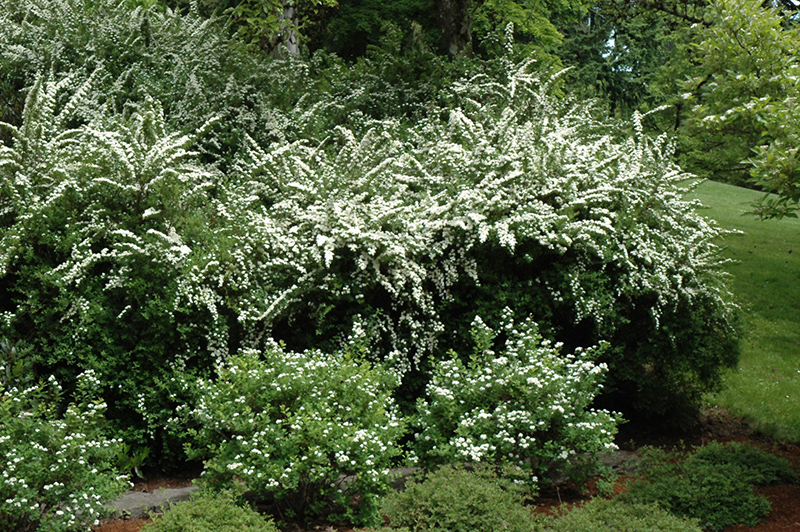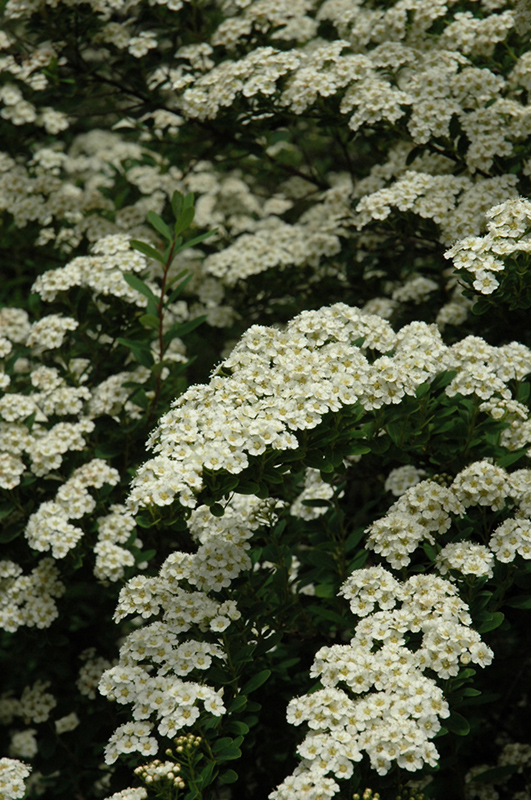Plantfinder
siteadmin2023-06-04T13:10:09-03:00
Snowmound Spirea
Spiraea nipponica 'Snowmound'
Height: 4 feet
Spread: 5 feet
Sunlight:
![]()
Hardiness Zone: 2b
Description:
A stunning specimen shrub absolutely smothered in snow-white flowers in late spring held along gracefully arching branches, attractive shape and foliage the rest of the year; needs full sun and well-drained soil
Ornamental Features
Snowmound Spirea is bathed in stunning clusters of white flowers held atop the branches from mid to late spring. It has bluish-green deciduous foliage. The small serrated oval leaves turn an outstanding coppery-bronze in the fall.
Landscape Attributes
Snowmound Spirea is a multi-stemmed deciduous shrub with a shapely form and gracefully arching branches. Its relatively fine texture sets it apart from other landscape plants with less refined foliage.
This shrub will require occasional maintenance and upkeep, and should only be pruned after flowering to avoid removing any of the current season's flowers. It is a good choice for attracting butterflies to your yard, but is not particularly attractive to deer who tend to leave it alone in favor of tastier treats. It has no significant negative characteristics.
Snowmound Spirea is recommended for the following landscape applications;
- Accent
- Mass Planting
- General Garden Use
Planting & Growing
Snowmound Spirea will grow to be about 4 feet tall at maturity, with a spread of 5 feet. It tends to fill out right to the ground and therefore doesn't necessarily require facer plants in front. It grows at a fast rate, and under ideal conditions can be expected to live for approximately 20 years.
This shrub should only be grown in full sunlight. It prefers to grow in average to moist conditions, and shouldn't be allowed to dry out. It is not particular as to soil type or pH. It is highly tolerant of urban pollution and will even thrive in inner city environments. This is a selected variety of a species not originally from North America.
A NetPS Plant Finder tool

